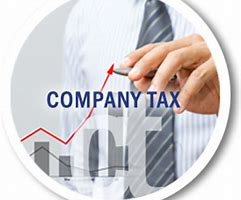[Online] Contributory Pensions and Social Security Benefits – All You Need to Know – 10 April
The information provided in this webinar should primarily apply to employers and employees across the board, accountants, HR managers, and professionals, however it should also prove fruitful to the general public.
Seminar Description
Contributory Pensions
The Social Security Act (Cap 318) provides for a two-thirds Contributory Scheme, for a Retirement Pension Scheme, and for a Non-Contributory Age Pension. Eligibility for a two-thirds pension and retirement pension rests on pension age, contribution record, and pensionable income. For a non-contributory age pension, eligibility depends on age and on specific conditions of a means test.
This course will provide basic information on the Contributory Pension as administered by the Department of Social Security. The types of pensions available, and the related eligibility conditions under the contributory scheme will be covered with the aim to provide participants with a better overview of the retirement, widows and invalidity pensions under the Social Security Act.
Social Security Benefits
The Social Security Act (Cap 318) basically provides for the Contributory Scheme, and the Non-Contributory Scheme. Eligibility under the Contributory Scheme requires that specific contribution conditions are satisfied, whereas eligibility under the Non-Contributory Scheme requires that specific conditions of a capital and/or means test are satisfied.
The aim of this session on Social Security Benefits is to provide basic information on:
- contributory short-term benefits that include sickness, unemployment, and injury benefits.
- family benefits that include children’s allowances and maternity benefits;
- non-contributory benefits that include social and medical assistance as administered by the Department of Social Security.
Through this session we will cover the several types of benefits and their eligibility conditions under the Contributory and the Non-contributory schemes.
Target audience
The information provided in this webinar should primarily apply to employers and employees across the board, accountants, HR managers, and professionals, however it should also prove fruitful to the general public.
CPE
Qualifies for 3 CPE Professional hours under the core competency area.
Course Fee
The course fee is €85.00 Non-Members €75.00 For Members. The fee covers seminar participation and access to event resources. Login details will be provided closer to the date.
A receipt will be issued to all participants.
Event Resources
Participants will receive the event resources by email.
Additional Information
For more information, kindly use the following communication mediums:
T: 21 58 53 74 M: 77 01 17 19 E: info@skillsmalta.com Webpage: www.skillsmalta.com




